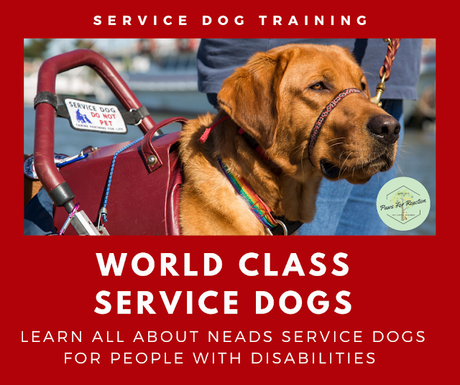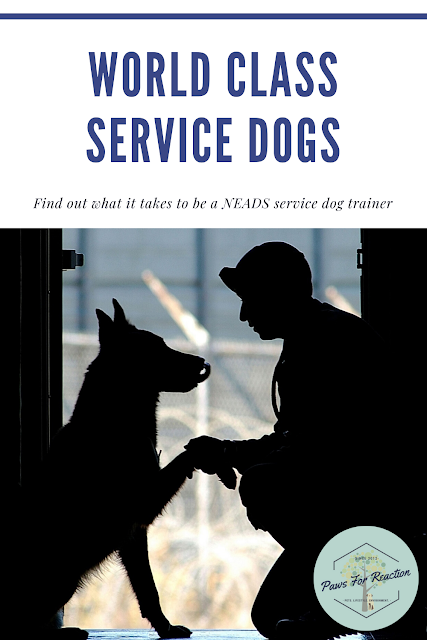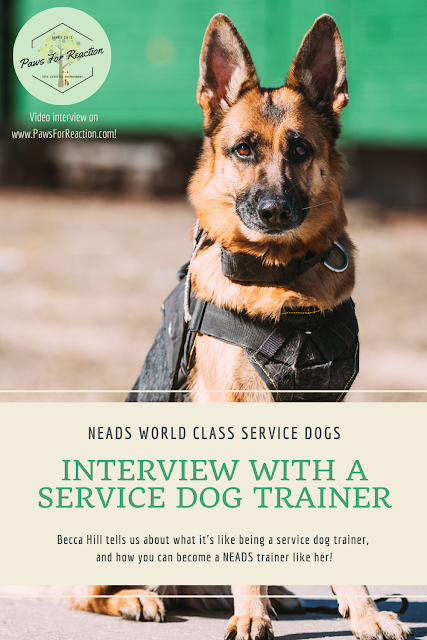
I can’t imagine my life without my dogs. They have improved my quality of life and mental health in so many ways. My dogs give me so much, but it doesn’t compare the role a service dog plays in the life of someone with disabilities. Matching a person with the right service dog is life-changing, and these dogs require expert training so they can learn to perform tasks to better assist their clients.
NEADS® World Class Service Dogs offers the widest array of service dog programs in the industry. Formerly known as National Education for Assistance Dog Services and Dogs for Deaf and Disabled Americans, NEADS is a non-profit organization that was established in 1976. NEADS has trained over 1,800 service dog teams since it was founded and is accredited by Assistance Dogs International.
Dr. Mark Pelham is a veterinarian and U.S. Army Major with the Veterinary Corps who knows how important it is for service dogs to be in good health.
"I've seen first hand how important preventative medicine can be for dogs, whether it is our family pet or a service dog," said Dr. Pelham. "They play such a big role in their handler's lives and they need to be at their best when they're working."
Check out myvideo interview with a veterinarian and U.S. Army Major with the Veterinary Corps Dr. Mark Pelham, and NEADS service dog trainer Becca Hill below!
Since NEADS receives very limited funding from the federal government, they rely on the support of individuals, foundations, corporations, and service organizations. Merck Animal Health's BRAVECTO Cares program supports NEADS. BRAVECTO Cares focuses on the wellness of family pets and service dogs. It's important that service dogs are healthy, and preventative care is a big part of that. It is easier and more cost-effective to prevent illness than it is to treat it. The same goes for our parasite prevention. Flea and tick prevention is an important part of your pet's overall health and wellness.
"Pets are part of our family and provide us with unconditional love and support, so in return, we need to provide them with the correct healthcare," said Dr. Pelham.

NEADS service dogs provide independence when matched with someone who has physical disabilities. They host the oldest Hearing Dog program in the United States and train their dogs to support clients who are deaf. Their service dogs promote socialization and confidence for autistic children and people with developmental disabilities. They support veterans with PTSD through the Service Dogs for Veterans program. Their service dogs visit hospitals, classrooms, and mental health facilities to provide therapeutic assistance.


Give me a high paw and follow Paws For Reaction on PinterestLike Paws for Reaction on Facebook
Follow my blog and subscribe in the sidebar >>
